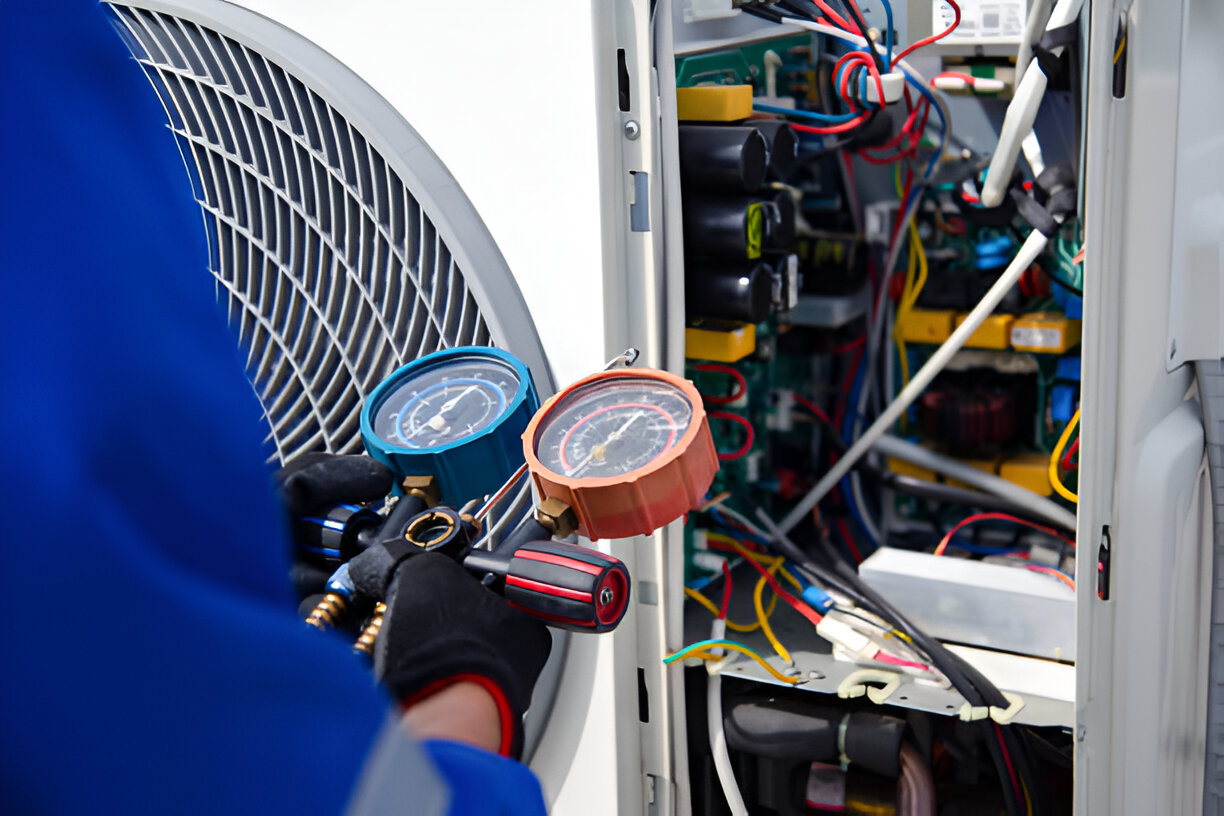
AC Service in Willow Street, PA
Hot, humid summers and older housing stock make reliable air conditioning essential in Willow Street, PA. Professional AC service keeps homes comfortable, lowers energy bills, and prevents costly midseason breakdowns.
Why timely AC service matters in Willow Street, PA
Willow Street experiences warm, humid summers that put continuous strain on air conditioners. High humidity increases run time and reduces system efficiency, while spring pollen and agricultural dust common in Lancaster County can clog filters and coils. Older homes in the area may also have undersized ductwork or aging equipment that needs regular attention. Timely service prevents comfort interruptions, improves indoor air quality, and extends equipment life.
Common AC issues in Willow Street homes
Homeowners in Willow Street most often call for:
- Weak or inconsistent cooling due to low refrigerant, blocked airflow, or failing compressors
- Short cycling caused by thermostat problems, oversized equipment, or electrical faults
- Poor airflow from clogged filters, damaged ducts, or failing blower motors
- Excess humidity or condensation issues from undersized systems or blocked condensate drains
- Strange noises indicating loose components, failing fan motors, or compressor distress
- Frequent tripping of breakers because of bad capacitors, contactors, or wiring issues
Types of AC services offered
- Diagnostics and system evaluation (including thermostat calibration and airflow testing)
- Emergency and same-day AC repairs for breakdowns and safety concerns
- Full system installation and replacement (sizing, ductwork, and permit handling)
- Preventive maintenance plans and seasonal tune-ups
- Indoor air quality upgrades (filters, dehumidifiers, UV lights)
- Zoned system and thermostat upgrades for better comfort control
How diagnostics work: what technicians check
A thorough diagnostic starts with a systematic inspection to identify root causes, not just symptoms:
- Visual and safety check: cabinet, electrical connections, condensate lines, and refrigerant piping
- Thermostat evaluation: settings, calibration, and wiring integrity
- Airflow measurement: filter condition, blower operation, and duct inspection for leaks or restrictions
- Refrigerant and pressure testing: verify charge and look for leaks using electronic leak detectors when needed
- Electrical testing: capacitors, contactors, compressors, and breaker/fuse verification
- Performance verification: temperature split across evaporator coil and timed run tests to confirm normal operation
Technicians document findings and provide an itemized estimate showing recommended repairs or replacement options.
Common repairs explained in plain language
- Refrigerant leak repair and recharge: locate and fix leaks, then recharge to correct levels for efficient cooling
- Capacitor and contactor replacement: restore reliable start-up and electrical stability for compressors and motors
- Fan or blower motor repair/replacement: restore airflow and proper system cycling
- Compressor repairs: addressed when testing indicates compressor failure; often evaluated against replacement depending on age and cost
- Thermostat replacement or recalibration: improves system control and prevents unnecessary cycling
- Condensate drain and pump service: clear blockages and prevent water damage or shutdowns
Installations and replacements: what to expect
A proper replacement starts with accurate sizing and selection:
- Load calculation (Manual J) to size equipment based on home characteristics and Willow Street climate
- System selection: efficiency ratings, matching indoor/outdoor components, and compatibility with existing ductwork
- Duct assessment and modifications as needed for airflow balance
- Permits, local code compliance, and final system commissioning with performance testing
- Explanation of available manufacturer warranties and labor warranty options
Brand experience: technicians commonly install and service major manufacturers and can recommend systems that balance efficiency, durability, and budget. They also handle manufacturer warranty paperwork and registration when applicable.
Preventive maintenance that reduces midseason failures
Regular tune-ups restore efficiency and reliability:
- Replace or clean filters and verify correct filter size
- Clean condenser and evaporator coils to improve heat transfer
- Check refrigerant charge and correct if necessary
- Inspect and tighten electrical connections, test capacitors and relays
- Lubricate moving parts and verify blower motor operation
- Clear condensate lines and check safety switches
- Calibrate thermostat and verify system controls
Recommended frequency: at minimum once per year—ideally a pre-summer inspection—plus a follow-up in high-use situations or for older systems. Maintenance plans typically include scheduled visits, priority service, and documented service history.
Response times and emergency service
Local service providers understand how quickly temperatures can become unsafe during Pennsylvania heat waves. Emergency service is available 24/7 for urgent failures that affect safety or habitability. For non-emergency repairs, typical scheduling aims to provide routine service within a few business days, with priority options during peak season. Exact arrival windows depend on current demand and service area logistics.
Technician certifications and qualifications
Qualified technicians hold certifications that reflect skill and compliance:
- NATE certification for diagnostic and repair competence
- EPA refrigerant handling certification for safe refrigerant recovery and recharge
- State licensing and insurance to meet Pennsylvania requirements
- Ongoing manufacturer training for specific brand installations and warranty compliance
Family-owned teams in the area often emphasize local experience, consistent technicians, and community-focused service.
Pricing transparency and service guarantees
Transparent service means clear, itemized estimates before work begins:
- Written diagnostic findings and line-item pricing for parts and labor
- Explanation of repair vs replacement options and long-term cost implications
- Disclosure of any warranty coverage for parts and labor as applicable
- Service guarantees typically include workmanship warranties and adherence to manufacturer warranty requirements on installed equipment
How to request routine or emergency service
Residents can request service online through a scheduling form or customer portal where they describe symptoms, select service type, and note preferred availability. Emergency service requests are handled through a dedicated dispatch line monitored 24/7; callers receive triage and prioritization for immediate attention.


Enjoy flexible financing options that make upgrading or repairing your HVAC system easy and budget-friendly.










